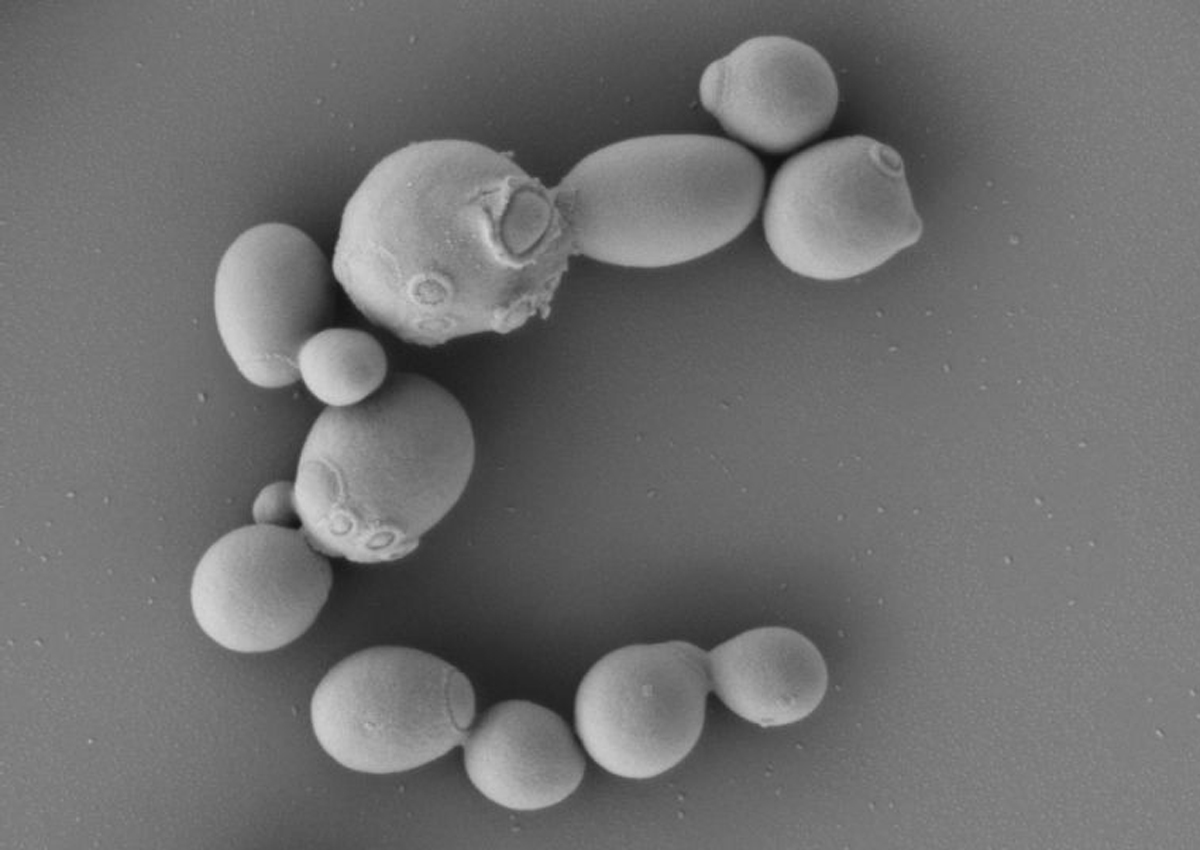
Scientists Clone SARS-CoV-2 Genome Using Quick Yeast-Based Method
May 13, 2020| |
A paper published in Nature reports that researchers have generated a full-length clone of SARS-CoV-2 genome using artificial chromosomes in brewers' yeast. The researchers say that a major benefit of the yeast system is its speed and stability.
Reconstructing and modifying the genomes of disease-causing viruses are essential for studying their method of infection, replication, drugs that might work against them, and potential vaccines. "The idea is to learn about the virus and its weaknesses," says coauthor Volker Thiel of the University of Bern.
The most widely used method for cloning genomes of viruses is to stitch fragments of the DNA together and introduce them into Escherichia coli bacteria for replication. For some viruses though, including coronaviruses, the approach can be problematic. Thiel says that coronaviruses have extraordinarily large genomes, making them difficult for the bacteria to cope with, and parts of the genome are unstable or can be toxic to the bacteria. Yeast cells, on the other hand, are larger than bacteria and can handle bigger pieces of DNA. Yeast cells have an inherent ability to assemble fragments of DNA into one big molecule.
For more details, read the article in The Scientist and the full paper in Nature.
| |
You might also like:
- Researchers Discover Antibody that Blocks SARS-CoV-2 Infection in Cells
- Researchers in Spain Use Biotech to Produce SARS-CoV-2 Vaccine in Plants
- Scientists Say COVID-19 Coronavirus Has Natural Origins
Biotech Updates is a weekly newsletter of ISAAA, a not-for-profit organization. It is distributed for free to over 22,000 subscribers worldwide to inform them about the key developments in biosciences, especially in biotechnology. Your support will help us in our mission to feed the world with knowledge. You can help by donating as little as $10.
-
See more articles:
-
News from Around the World
- Global Demand for Cotton Declines Due to COVID-19 Crisis
- Bolivia to Speed Up Evaluation of GM Crops
- Review Shows Biotechnological Strategies to Develop Drought Resistant Crops
- Plants Have Memories, But How Do Plants Forget?
-
Research Highlights
- Scientists Discover Plant Molecular "Alarm" System Protects them from Predators
- Comparative Genomics Helps Reduce Spread of Bacterial Canker in Tomatoes
-
Plant
- CRISPR-Cas9 Used to Study Genes Involved in Grapevine Disease Symptoms
- International Plant Biotech Experts Weigh in on New Breeding Technology Regulations
-
Health
- Scientists Clone SARS-CoV-2 Genome Using Quick Yeast-Based Method
- COVID-19 Treatment Efforts Using Plant Technologies
-
Read the latest: - Biotech Updates (February 11, 2026)
- Gene Editing Supplement (January 28, 2026)
- Gene Drive Supplement (February 22, 2023)
-
Subscribe to BU: - Share
- Tweet

